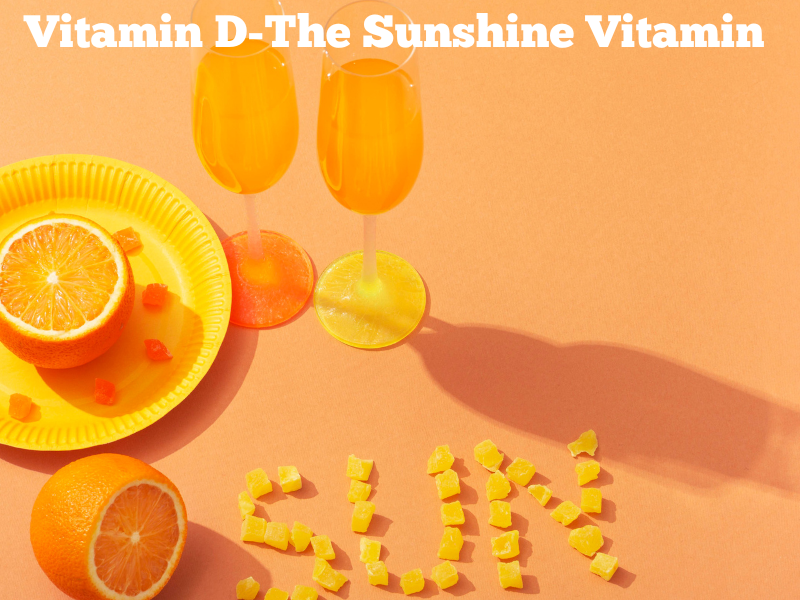Test Parameters: Alanine Amino-transferase (ALT) SGPT
Vitamin D: A Nutrient with Far-Reaching Benefits

Vitamin D, often dubbed the "sunshine vitamin," vitamin D is a fat-soluble vitamin that is necessary for a number of body processes. It is essential for keeping strong bones and teeth, helps absorb calcium, promotes the strength of the immune system, decreases inflammation, and controls cell growth.
Sunlight exposure causes the skin to produce vitamin D, which has several functions in preserving good health. Its main job is to absorb calcium, which makes sure the body has enough of it for bone mineralization and strength. Beyond its skeletal benefits, vitamin D also modulates immune responses, reduces inflammation, and promotes cell differentiation and growth.
Dietary Sources of Vitamin D
While sunlight exposure remains the primary source of vitamin D, certain foods contribute to vitamin D intake. These include:
Fatty fish: Salmon, tuna, mackerel, and sardines are excellent sources of vitamin D.
Cod liver oil: A rich source of vitamin D, traditionally used to combat vitamin D deficiency.
Egg yolks: One egg yolk provides approximately 40 IU of vitamin D.
Fortified foods: Many foods, such as milk, orange juice, and cereals, are fortified with vitamin D.
Mushrooms: Some mushrooms, particularly those exposed to ultraviolet light, contain vitamin D.
Ensuring Adequate Vitamin D Intake
The recommended daily intake (RDI) of vitamin D varies by age group:
0-12 months: 400 IU
1-70 years: 600 IU
Over 70 years: 800 IU
Achieving adequate vitamin D intake involves a combination of sunlight exposure, dietary sources, and supplementation when necessary.
Sunlight Exposure: A Natural Source
Sun exposure remains the primary source of vitamin D. However, excessive sun exposure can increase the risk of skin cancer. Aim for brief sun exposure without sunscreen, particularly during the midday hours, to support vitamin D synthesis.
Dietary Strategies for Vitamin D
Incorporating vitamin D-rich foods into your diet is essential for optimal intake. Consider these dietary recommendations.
Include fatty fish: Enjoy regular servings of salmon, tuna, mackerel, or sardines.
Consume fortified foods: opt for fortified milk, orange juice, and cereals.
Consider egg yolks: Include eggs in your breakfast or incorporate egg yolks into recipes.
Supplementation: An Option for Some
Vitamin D supplements may be recommended for individuals with limited sun exposure, certain medical conditions, or those who do not consume adequate vitamin D-rich foods. Consult your healthcare provider to determine if supplementation is necessary.
- The Gut-Brain Connection: Unlocking the Secret to Holistic Health for Indians
- Why Regular Health Check-ups are Crucial for Every Indian
- Understanding Common Blood Tests: What Your Results Mean
- The Importance of Regular Health Screening: Top Tests You Shouldn't Skip
- National Health Checkup Day: Your Path to a Healthier You
- International Day for Endurance: Celebrating the Power of Perseverance
- World Diabetes Day: Raising Awareness and Supporting People with Diabetes
- Understanding and Conquering Arthritis: World Arthritis Day
- World Mental Health Day: It's Okay To Not Be Okay
- Beyond Mosquito Bites: The Fight Against Dengue and Malaria
- The Importance of Preventive Health Screenings.
- Keep Your Kidneys Healthy: Test Before They Test You
- The Best Pathology Lab in Panvel, Navi Mumbai, Seawoods
- Full Complete Body Checkup in Panvel, Navi Mumbai, Seawoods
- Blood Test Collection Labs in Panvel, Navi Mumbai, Seawoods
- Best Diagnostic Centre in Panvel, Navi Mumbai, Seawoods
- The role of Pathology Lab in disease diagnosis
- Save Time and Money with an At-Home Body Checkup
- Importance of early detection and full body checkup
- Exploring the Importance of Lipid Testing Alongside ECG for Assessing Heart Health
- Reliable home blood sample collection
- Full Body Checkup Session In Navi Mumbai
- Free Home Blood Sample Collection in Navi Mumbai
- Best Online Pathology Lab
- Best Diagnostic Center
- Affordable Online Full Body Checkup Packages

